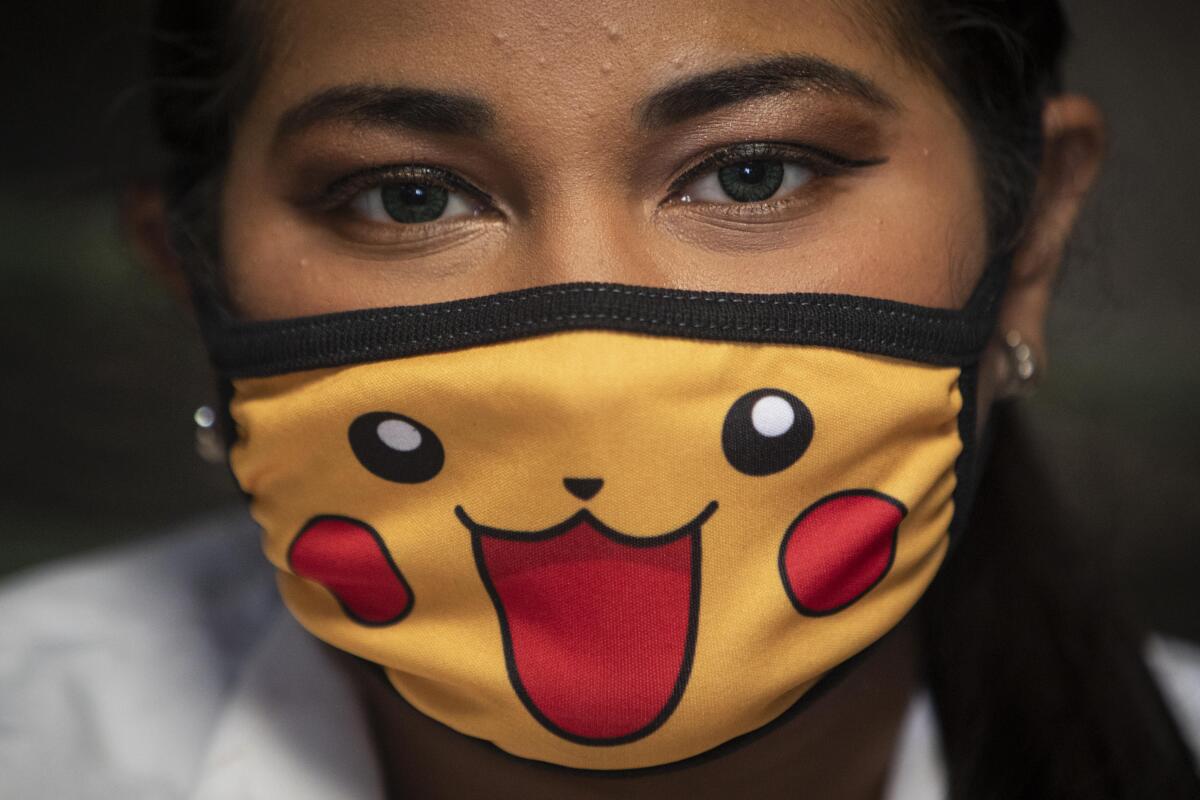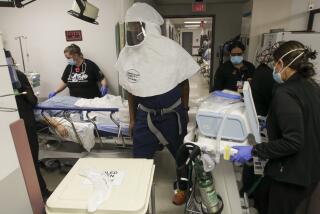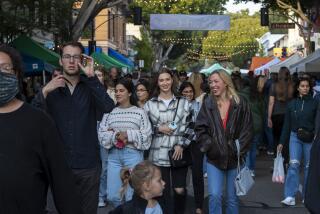COVID-19 doctors running out of masks? Try a bandanna, the CDC says

The U.S. Centers for Disease Control and Prevention has new advice for medical workers desperate for protective gear against COVID-19: Try a bandanna for protection.
The agency, scrambling to advise healthcare workers faced with severe shortages of gear, also recommends that another “last resort” solution could be a scarf.
“Caution should be exercised,” the CDC warns about matching up a house cloth against the new coronavirus. “Their capability to protect [medical workers] is unknown.”
It’s the latest tip from an increasingly beleaguered agency that continues to loosen safety guidelines, even as coronavirus infections rise.
Gov. Gavin Newsom has ordered Californians to stay at home. With businesses and popular destinations closed, The Times’ Luis Sinco documented the surreal scenes.
“It’s all incredibly disturbing to me. I’ve just been shocked at the CDC’s fall-down,” said Beth Hasenauer, a former pediatric oncology nurse in Monrovia, Calif., who plans to sew makeshift masks for endangered healthcare workers.
“But I don’t want people thinking they’re necessarily safe wearing these. They’re just an emergency stopgap measure.”
U.S. health officials in the early days of the outbreak recommended that any medical worker treating a suspected coronavirus patient wear an N95 mask, which seals tightly around the nose and mouth and filters out about 95% of small airborne particles. But federal officials have said that the Strategic National Stockpile contains just 1% of the masks that experts predict could be needed throughout the pandemic.
There are plans to add 500 million N95 respirators to the stockpile, but those could take up to 18 months to be delivered, according to the grant application. The CDC now says looser-fitting surgical masks are considered “an acceptable alternative” for most medical staff.
And in a worst-case scenario? A DIY-mask, made from household fabrics, is an option.
YouTube and Pinterest now abound with unverified mask-making tutorials: some strung from paper towels and rubber bands; others made with toilet paper (which could soon be depleted as well).
PHOTOS: California and the coronavirus | Mayor issues ‘safer at home’ order
Providence St. Joseph Health, a large hospital chain based in Seattle, is now recruiting volunteers to sew a supplementary supply. Called the 100 Million Mask Challenge, the group is distributing crafting kits to anyone with a sewing machine and “a willing heart.”
“Quilters have always been altruistic,” Hasenauer said, describing blankets sewn for charities and animal pouches crafted during wildfires. “People are sitting at home with nothing to do, wondering how to help out. So we want to channel that energy and salvage the healthcare system.”
In an email sent Friday, Judy Garner, the vice dean for faculty affairs at USC’s Keck School of Medicine, told the faculty that workers who were at “greatest risk of exposure” were facing shortages. She asked them to pool any remaining stashes of face masks and eye protection in communal boxes in the administrative office’s lobby.
In the meantime, hospitals have begun hiding mask inventories behind lock and key. Some doctors say they have researched methods to wash and reuse their masks; others are simply going without.
An emergency room doctor in a Downey hospital said the lax regulations have made her fearful to work, and she called the changes “so, so shortsighted.”
“Saving a few masks today will create an exponentially greater need for more masks later on,” she said. “If we don’t protect the healthcare workers, they will become the main driver of the pandemic. And they will become vectors for the spread.”
Times staff writers Nathan Fenno and Soumya Karlamangla contributed to this report.
More to Read
Get the L.A. Times Politics newsletter
Deeply reported insights into legislation, politics and policy from Sacramento, Washington and beyond. In your inbox three times per week.
You may occasionally receive promotional content from the Los Angeles Times.








